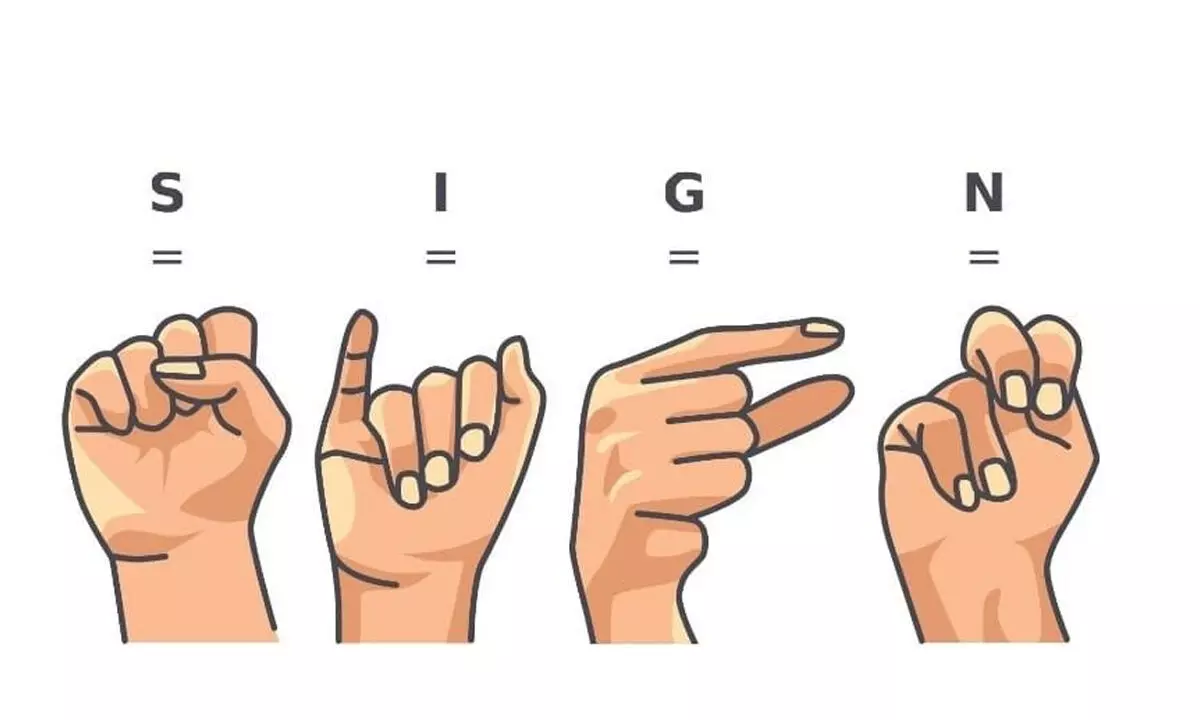Today is International Day of Sign Languages: A call to support deaf communities & preserve cultural diversity

The International Day of Sign Languages (IDSL), observed on September 23rd each year, celebrates the importance of sign languages in maintaining the linguistic identity and cultural diversity of deaf people and other sign language users.
The International Day of Sign Languages (IDSL), observed on September 23rd each year, celebrates the importance of sign languages in maintaining the linguistic identity and cultural diversity of deaf people and other sign language users. This day, established by the United Nations in 2017, not only promotes the use of sign languages but also advocates for the rights of deaf individuals, helping raise awareness about their unique challenges and contributions to society.
Preserving linguistic identity and cultural heritage
Sign languages are complete, complex systems of communication with their own grammatical structures, idioms, and cultural nuances. They are not universal; each region or community may have its own distinct sign language. For instance, American Sign Language (ASL) is different from British Sign Language (BSL), although both are used in countries where English is the dominant spoken language. These differences reflect the rich cultural diversity of the global deaf community.
The preservation of sign languages is crucial for protecting the linguistic identity of deaf people. Much like spoken languages, sign languages are deeply intertwined with culture. They carry traditions, values, and histories that are unique to deaf communities. The IDSL highlights the importance of this linguistic heritage, calling on governments and societies to ensure that sign languages are not marginalized or forgotten.
Empowering deaf individuals and promoting inclusion
Globally, over 70 million deaf people use sign languages as their primary means of communication. Yet, many still face barriers to full participation in society, including limited access to education, employment opportunities, and essential services. The IDSL shines a spotlight on these challenges and advocates for the inclusion of sign language users in all aspects of life.Access to education in sign languages is a fundamental right that is often denied to deaf individuals, particularly in developing countries. Without quality education in their native language, deaf children struggle to reach their full potential.
The International Day of Sign Languages promotes the need for bilingual education, where both the local sign language and the national spoken language are taught to provide equal opportunities for deaf students.
Moreover, the day emphasizes the need for sign language interpreters in public spaces, government services, healthcare, and media. Providing interpretation ensures that deaf individuals can access vital information and participate in decision-making processes that affect their lives. By supporting policies that promote sign language inclusion, we create a more equitable society for all.
Raising awareness and advocacy
The International Day of Sign Languages is an important platform for raising awareness about the rights of deaf individuals and other sign language users. It provides an opportunity for advocacy, encouraging governments, organizations, and individuals to take action in support of these communities. Public events, workshops, and online campaigns are often organized to promote the significance of sign languages and to educate the public about the diversity of deaf culture.
The Path Forward: Strengthening support for sign language users
The theme of IDSL often centers around inclusivity, unity, and the celebration of deaf culture. While progress has been made in many parts of the world, much work remains to be done. Governments must implement policies that recognize sign languages as official languages and ensure that deaf individuals have access to education, employment, and services in their preferred mode of communication.
On an individual level, learning basic sign language can be a powerful way to foster inclusion and understanding. Small steps, such as greeting a deaf person in sign language or advocating for sign language accessibility in local communities, can make a significant difference in breaking down barriers.















